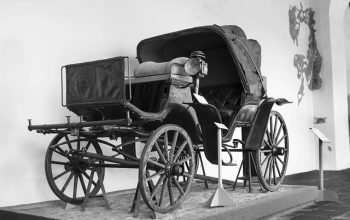When acquiring a used vehicle, due diligence is paramount to safeguard against legal entanglements and ensure the authenticity of the car. This article delves into the critical process of car ownership validation, which encompasses licensed vehicle verification, thorough car condition assessment, and accident history checks. By leveraging comprehensive used car verification services and relying on trustworthy car inspection professionals, buyers can confidently ascertain a vehicle’s legitimacy and condition, thereby protecting their investment from the pitfalls of fraudulent sales and misrepresentation.
- Understanding Car Ownership Validation: Essential Steps for Buyers
- The Role of Licensed Vehicle Verification in Ensuring Legitimate Transactions
- Comprehensive Used Car Verification: Assessing Car Condition and Accident History
- Trustworthy Car Inspection Services: A Shield Against Fraudulent Sales and Misrepresentation
Understanding Car Ownership Validation: Essential Steps for Buyers

When purchasing a used vehicle, it is imperative for buyers to engage in thorough car ownership validation processes to ascertain the car’s condition and legal standing. A comprehensive verification includes examining the vehicle’s licensed status, ensuring that all paperwork is in order and reflects the correct owner. This step is crucial as it confirms that the seller has the right to transfer ownership without any encumbrances or outstanding financial obligations attached to the car.
Buyers should also consider a vehicle legitimacy check, which involves verifying the car’s history for any signs of fraudulent activity, odometer tampering, or accidents that could affect its safety and value. Trustworthy car inspection services can provide a detailed report on the car’s accident history verification, offering insights into past repair work and collision events that might not be immediately apparent. This due diligence not only protects the buyer from potential legal complications but also guarantees the authenticity of the vehicle being purchased. Ensuring that all these steps are taken before finalizing a used car transaction is essential for securing peace of mind and maintaining one’s financial interests.
The Role of Licensed Vehicle Verification in Ensuring Legitimate Transactions

When purchasing a used vehicle, buyers must navigate with caution to ensure the transaction is both legitimate and free from legal complications. A critical component in this process is the role of licensed vehicle verification services. These services offer comprehensive car condition verification, which goes beyond a mere inspection; they confirm the vehicle’s legitimacy check by verifying its history, ensuring that the seller has the right to sell the car. This includes a detailed assessment of the car’s accident history verification, which is paramount in understanding potential issues or repairs that may affect its safety and value. By utilizing these services, buyers gain peace of mind, as the vehicle legitimacy check provides a transparent record of the car’s past, including ownership details, previous maintenance, and any accidents it has been involved in. This due diligence is essential for trustworthy car inspection, as it helps prevent fraudulent sales and ensures that the buyer is making an informed decision, thus facilitating a smooth transfer of ownership.
The importance of vehicle legitimacy check cannot be overstated. It serves as a safeguard against unscrupulous sellers who may attempt to offload vehicles with hidden problems or those that have been reported stolen or are under finance. A trustworthy car inspection through licensed vehicle verification services acts as a deterrent for such activities, maintaining the integrity of the used car market. These services compile and assess various data points, including the vehicle identification number (VIN), to cross-reference with national databases, ensuring that the car’s title is clear and that there are no outstanding liens or legal issues associated with it. This thorough process is essential for protecting buyers from potential financial losses and legal entanglements, making licensed vehicle verification an indispensable tool in the used car transaction landscape.
Comprehensive Used Car Verification: Assessing Car Condition and Accident History

When contemplating the purchase of a used vehicle, conducting a thorough car condition verification is paramount to ascertain the car’s status and reliability. A trustworthy car inspection should cover an evaluation of the vehicle’s mechanical integrity, odometer reading, and overall wear and tear. This process ensures that potential buyers are fully aware of what they are investing in, preventing any unpleasant surprises post-purchase. Moreover, a licensed vehicle verification is essential to confirm that the car is indeed registered and legal for road use, which is crucial for both insurance purposes and legal compliance.
In addition to assessing the immediate condition of the vehicle, a comprehensive used car verification must include an accident history verification. This check is vital as it provides insight into the vehicle’s past, revealing any previous collisions or damage that could affect its safety and performance. Understanding a car’s history in this regard allows buyers to make informed decisions, reducing the risk of purchasing a vehicle with hidden structural issues or other red flags that might compromise their safety and investment. A reputable vehicle legitimacy check service will compile this information from various databases, providing a comprehensive report that helps ensure the authenticity and integrity of the used car transaction.
Trustworthy Car Inspection Services: A Shield Against Fraudulent Sales and Misrepresentation

When considering the purchase of a used vehicle, it is imperative to engage with trustworthy car inspection services to verify the car’s condition and ensure the seller holds the legal right to sell the vehicle. These services go beyond a cursory glance, providing comprehensive checks on vehicle legitimacy, including licensing and ownership history. A thorough inspection by a certified professional can reveal critical information about the car’s past, such as accident history verification, which is pivotal in assessing the integrity of the vehicle post-repair. This due diligence acts as a safeguard for buyers, mitigating risks associated with fraudulent sales and misrepresentation. The insights gained from these services are indispensable tools that help potential owners make informed decisions, ensuring they do not inadvertently become entangled in legal complications arising from purchasing a vehicle that may have a questionable history or is not legally theirs to own.
Furthermore, the process of vehicle legitimacy check involves a series of steps designed to validate all aspects of the car’s documentation and physical condition. This includes verifying the VIN number, checking for outstanding finance liens, confirming odometer readings, and ensuring that the car has not been reported stolen or salvaged. Such services are not only beneficial for used cars but also provide a similar level of assurance for new vehicle purchases. By utilizing these trustworthy car inspection services, buyers can proceed with transactions confidently, knowing they have taken all necessary steps to validate car ownership and ascertain the vehicle’s true condition and history.
When purchasing a used vehicle, due diligence in verifying its legitimacy is paramount to safeguard both your investment and legal standing. A thorough car condition verification, coupled with licensed vehicle verification services, provides assurance that the transaction aligns with legal standards. By leveraging comprehensive used car verification processes, buyers can confidently assess the car’s history, including any past accidents, ensuring they are making an informed decision. Trustworthy car inspection services serve as a critical bulwark against deceptive practices, offering peace of mind that the vehicle is authentic and its documentation is accurate. In conclusion, these verification steps are not merely formalities; they are essential safeguards in the used car marketplace, protecting both parties involved in the transfer of ownership.



